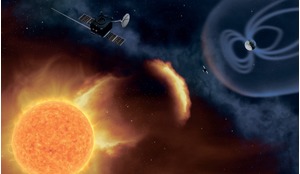In the near future billions of people across the globe could benefit from broadband internet access in remote areas provided by balloons, drones and satellites. After investigating the possibilities, risks and opportunities of these technologies members of the Space Generation Advisory Council (SGAC), a group of students and young professionals in the space sector, have made four recommendations to help spread the ‘sky-fi’ concept.
The internet plays an essential role in everyday life - from communication, broadcasting and navigation to real-time information about any topic and, of course, virtually all business and government operations now depend on it. In the developed world, people can hardly imagine a daily routine without the Internet but, despite the benefits it delivers to 21st century life, only 39% of the world’s population has internet access — meaning some four billion people continue to live their lives without it.
Internet access could greatly improve the lives of these four billion people, so many companies are now seeking to provide internet services to the developing world.
Today, the primary technology for providing internet access is based on fibre optical communication. Physical cables are laid worldwide to connect continents and to provide broadband access. The three main exceptions are local Wi-Fi networks, mobile broadband and satellite communications.
Find out more about the possibilities and the future of global internet coverage in this ROOM Special Report, available now to our subscribers!














